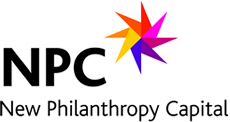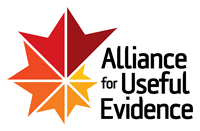Christian Schober and Volker Then have authored a German handbook introducing an approach to impact measurement and analysis, Social Return of Investment (SROI). The handbook includes practical tips for the concrete implementation of SROI analysis, as well as views and critical reflection of the method with checklists, illustrations and case studies. Published by: Schäffer-Poeschel Verlag, Stuttgart (Germany) 2015.
The NPO competence centre of the University of Economics of Vienna was tasked by Coca-Cola Austria with the Evaluation of the project “Initial Housing Aid - a project of the Vöcklabruck poverty network”. The project was awarded the first prize in 2010 under the initiative “Ideas against Poverty”. The “Ideas against Poverty” innovation prize was initiated in 2007 by Coca-Cola Austria together with “Der Standard” and the NPO competence centre. Its aim is to support the implementation of projects in the area of poverty alleviation and prevention in Austria by an initial financial aid.
The evaluation was done by way of a Social Return on Investment (SROI) analysis with the goal of assessing the added value for society generated by the project in an as comprehensive as possible manner.
The NPO Institute, Competence Centre for Non-Profit Organisations, was tasked by the Essl Foundation with the evaluation of the “Casa Abraham” project. The project, which was launched by Father Georg Sporschill, received the Essl Social Prize in 2008, which awards sustainable support and assistance for people in distress.
The evaluation was done by way of a Social Return on Investment (SROI) analysis with the goal of assessing the added value for society generated by the project in an as comprehensive as possible manner.
This SROI analysis by NPO Competence Center was based on the model developed by the New Economics Foundation and explored the entire fire brigade system in Upper Austria in 2010.
The NPO Institute, competence centre for non-profit organisations, was tasked by the Coca-Cola Austria with the evaluation of the project “Donate your old washing machine! The ecological-social redistribution of washing machines and dishwashers”. Under the initiative “Ideas against Poverty”, the project was awarded the first prize in 2009. The “Ideas against Poverty” innovation prize was initiated in 2007 by Coca-Cola Austria together with Der Standard and the NPO Institute at the WU Vienna. Its aim is to support the implementation of projects in the area of poverty alleviation and prevention in Austria by an initial financial aid.
The evaluation was done by way of a Social Return on Investment (SROI) analysis with the goal of assessing the added value for society generated by the project in an as comprehensive as possible manner.
Christian Schober and Olivia Rauscher have authored a German Working Paper which provides a comprehensive overview of the topic of social impact analysis. The paper considers the different methods and approaches of impact analysis in general and monetary approaches in particular. The paper will soon be published in English.
Published by: NPO & SE Competence Centre, Austria, 2015.
Ziel dieses Working Papers ist die Betrachtung der derzeit populären Konzepte des Social Impact Measurements und insbesondere der SROI-Analyse vor dem Hintergrund bereits länger bestehenden Konzepte der (ökonomischen) Evaluation. In Anknüpfung daran wird das logische Modell bzw. die Wirkungskette, als Grundlage für Evaluation und quasi als Pendant dazu, die „Theory of Change“, die im Stiftungs-Bereich propagiert wird, thematisiert. Als eine spezielle Methode des Social Impact Measurements, die jedoch ebenso den Cost Benefit-Analysen der ökonomischen Evaluation zugerechnet werden kann, wird schließlich auf die SROI-Analyse mit ihren Vorteilen und Chancen sowie Nachteilen und Schwächen eingegangen.
This working paper from Olivia Rauscher, Christian Schober, Reinhard Millner and the NPO Competence Centre aims to analyse the popular concepts of social impact measurement and, in particular, of the SROI analysis against the background of concepts of (economic) evaluation that have been known and applied for a long time already. In this connection, the logic model or the impact chain, as the basis for an evaluation and, so to say as its counterpart, the “theory of change”, which is playing an increasingly important role in the area of foundations, is discussed. Finally, the SROI analysis with its advantages/opportunities and disadvantages/weaknesses, is examined as a special method of social impact measurement, which, however, can also be placed under the category of cost benefit analyses of economic evaluation.





